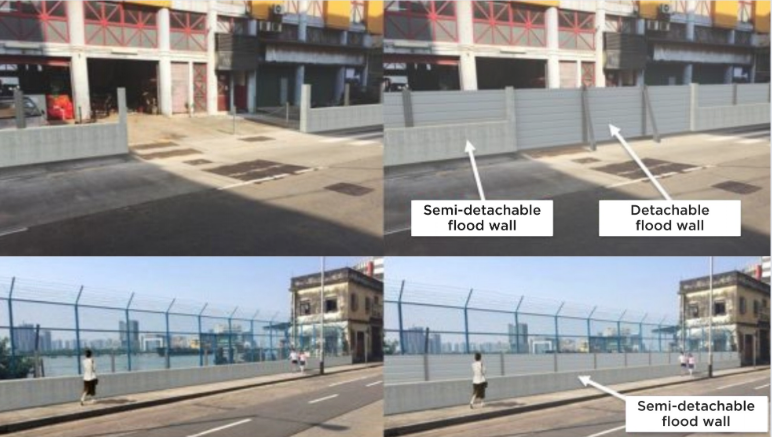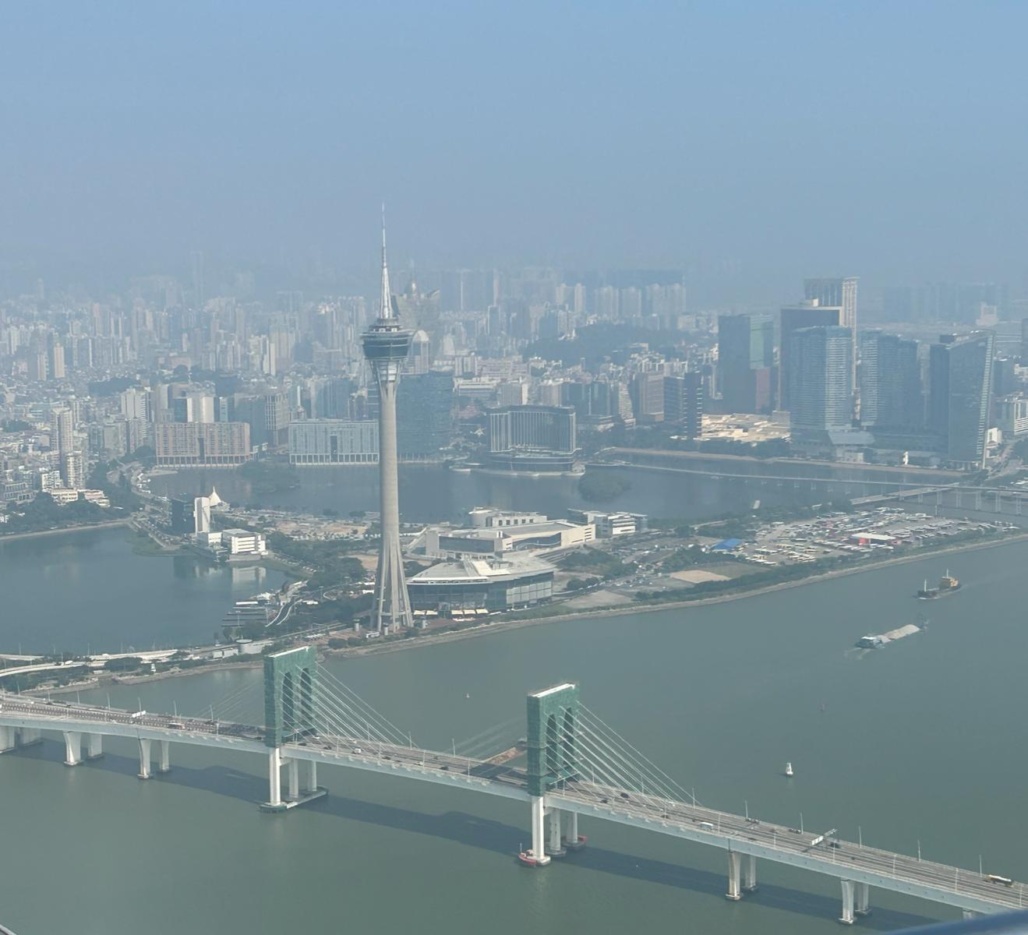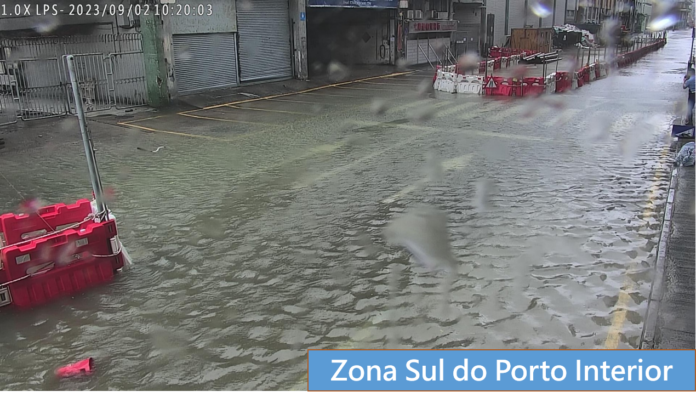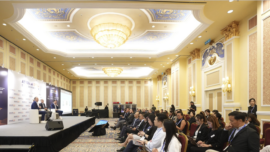Eva Jiang Yi Wa is one of the first lawyers in Macau specializing in, among other areas, environmental law, energy, and climate change. She works at JNV Lawyers and Notaries.
Macau Business | July 2024 | Special Report | How climate change(s) Macau
She has also been with the Faculty of Law at the University of Macau since 2011, serving as the Deputy Director of the Centre for Legal Studies and the Coordinator of the Postgraduate and Master’s programs.

Floods are increasingly common in the Inner Harbour and, experts say, because of climate change. This alone can lead to an increase in conflict in court. Is this one of the risks?
Eva Jiang – Yes, floods in the Inner Harbour are becoming more frequent primarily due to climate change, and this indeed poses significant legal risks. As part of the Macau Special Administrative Region, the Inner Harbour faces climate change challenges similar to those encountered in the rest of the world. Globally, climate change-induced extreme weather events such as floods, hurricanes, and rising sea levels have led to increased property damage and infrastructure destruction, subsequently resulting in numerous legal disputes. These disputes encompass several aspects:
Firstly, disputes over liability are likely to increase. Victims might even sue government agencies, arguing that they have failed to provide adequate flood prevention measures and infrastructure. Governments play a crucial role in responding to climate change and extreme weather events. Their responsibilities include not only the implementation of effective flood prevention infrastructure but also the formulation and enforcement of stringent environmental regulations and policies. Should the government fail to fulfil these duties effectively, it may face legal action.
“The judicial responsibility for climate change cannot fall solely on one type of entity; it is distributed among governments, businesses, and individuals”
Secondly, from a commercial perspective, as floods become more frequent, insurance claims and compensation issues will become more complex. Insurance companies might pay substantial compensation for flood damages but could also question whether the insured parties have adequate disaster prevention measures, leading to legal disputes. This also reminds the government to take precautions and strengthen dialogue with the insurance industry (“to prepare for a rainy day”), ensuring that insurance policies and claims procedures can address the growing climate risks.
Furthermore, the long-term impacts of climate change include challenges to land use and urban-planning policies. For example, the government may need to reassess and revise building related regulations and land use policies, including considerations for urban renewal plans, to adapt to changing environmental conditions.
In conclusion, climate change brings not only direct environmental and economic challenges but also complex legal issues, necessitating global legal frameworks and policy adjustments to address these risks. Governments, businesses, and individuals all have significant responsibilities in addressing climate change and preventing the resulting legal disputes.

It seems obvious that, despite some signs, we have not yet begun to suffer the consequences of climate change, which will happen in the coming decades. What can a lawyer with this specialisation do?
E. J. – As a Macau lawyer and law teacher in the Faculty of Law at the University of Macau, I see numerous opportunities to help our community prepare for and adapt to future challenges. Macau, as a global tourism hub, faces climate change challenges similar to those encountered in other parts of the world while participating in building a community with a shared future for mankind. Although we have not yet fully experienced the severe consequences of climate change, these impacts will become more apparent in the coming decades. Here are some action directions that I have considered:
Laws and Policies: First, I believe that legal professionals in Macau should actively participate in drafting and advocating for stricter environmental regulations and policies to mitigate and adapt to the impacts of climate change.
Legal Litigation and Advocacy: In terms of legal litigation, legal professionals in Macau, especially practicing lawyers, can represent individuals, communities, or NGOs in lawsuits against entities responsible for climate change.
Corporate Consulting and Compliance: Providing legal consulting and compliance advice to companies is both important and beneficial.
Education and Awareness: Education and awareness are also key duties of legal practitioners in the field of climate change.
Cross-Border Cooperation and Exchange: Finally, climate change knows no borders, it is a global issue that requires cross-border cooperation and exchange. As lawyers in Macau, we should actively participate in international or regional climate change legal forums, exchanging experiences and best practices with legal experts from other countries and regions.

A philosophical question: man, in a general sense, is primarily (the sole? responsible for climate change and, therefore, its consequences. Who will be held responsible when we start talking about judicial accountability?
E. J. – Judicial responsibility in environmental protection is not merely the duty of a single entity but rather a complex collective responsibility (the principle of “common but differentiated responsibilities” should likewise apply). As a lawyer in Macau specialising in environmental and administrative law, I believe that addressing the judicial responsibility related to climate change demands a comprehensive and integrated approach:
Administrative and legislative bodies: Governments play a fundamental role in mitigating and adapting to climate change, and this is indisputable. It is crucial that the government adopt a proactive and flexible approach to execution rather than merely reacting to issues.
In Macau, businesses must also adhere to local environmental laws and regulations while referencing international best practices to develop and implement effective environmental management systems. The Macau SAR government has enacted a series of environmental protection policies, and businesses must actively cooperate to ensure their operations do not negatively impact the environment; otherwise, they risk becoming defendants in judicial lawsuits.
In summary, the judicial responsibility for climate change cannot fall solely on one type of entity; it is distributed among governments, businesses, and individuals. Each entity plays a role in mitigating and adapting to climate change, forming a collective responsibility, with judicial responsibilities being no exception.
Previous | The weather is “broken” and Macau has already noticed that























